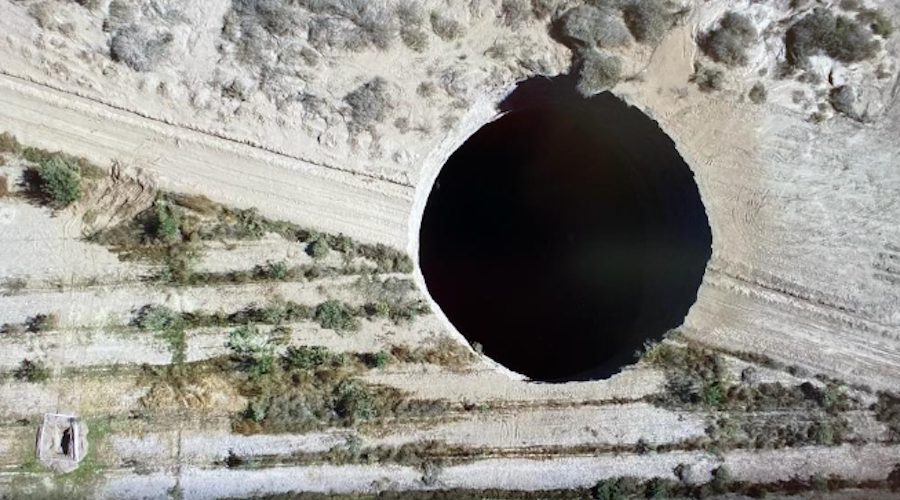Chile to ‘sanction’ those responsible for sinkhole near copper mine

Chile will seek to apply harsh sanctions on those responsible for a huge sinkhole near a copper mine in the country’s north, the mining minister said on Monday.
The mysterious hole of 36.5 meters in diameter that emerged in late July has provoked the mobilization of local authorities and led the mining regulator Sernageomin to suspend operations of a nearby mine owned by Canada’s Lundin in the northern district of Candelaria.
“We are going to go all the way with consequences, to sanction, not just fine,” Mining Minister Marcela Hernando said in a press release, adding that fines tend to be insignificant and the ruling must be “exemplary” to mining companies.
Chilean authorities have not provided details of the investigation into causes of the sinkhole.
Local and foreign media showed various aerial images of the huge hole in a field near the Lundin Mining operation, about 665 kilometers north of the Chilean capital. Initially, the hole, near the town of Tierra Amarilla, measured about 25 meters (82 feet) across, with water visible at the bottom.
The Canadian firm owns 80% of the property, while the remaining 20% is in the hands of Japan’s Sumitomo Metal Mining Co Ltd and Sumitomo Corp.
The minister added that although the country’s mining regulator had carried out an inspection in the area in July, it was not able to detect the “over-exploitation.”
“That also makes us think that we have to reformulate what our inspection processes are,” she said.
In a statement, Lundin said the over-exploitation referred to by the minister had been duly reported.
“We want to be emphatic that, to date, this hypothesis as reported by Sernageomin has not been determined as the direct cause of the sinkhole. The hydrogeological and mining studies will provide the answers we are looking for today,” Lundin said.
“Different events that could have caused the sinkhole are being investigated, including the abnormal rainfall recorded during the month of July, which is relevant,” added Lundin.
(By Fabian Andres Cambero and Carolina Pulice; Editing by Leslie Adler and Kenneth Maxwell)
{{ commodity.name }}
{{ post.title }}
{{ post.date }}




Comments